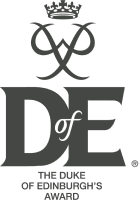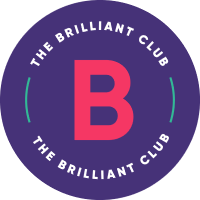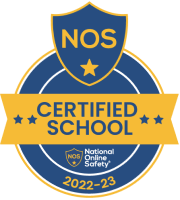This subject is part of the Faculty of Humanities and Social Sciences
Our Head of Faculty is
Mr M Durham – mdurham@tcat.school
Our subject teachers and emails are
Mr M Durham – mdurham@tcat.school
Mrs T Lloyd - tlloyd@tcat.school
Our subject intent is
To inspire a curiosity and fascination about the world and its people. Lessons equip pupils with in-depth knowledge and understanding of diverse places, cultures, resources and natural and human environments.
Pupils will steadily work out how the world works and how it can and will change in the future. Pupils will learn about places that are outside of their own experience, they will develop their understanding of the world’s diversity of environments, peoples, cultures and economies. Pupils will develop a ‘global conscience’ so that they can challenge stereotypes and understand the fluidity of key ideas and concepts. Pupils investigate the interaction between key physical and human processes.
Geographical knowledge, understanding and skills provide the frameworks and approaches that explain how the Earth’s features at different scales are shaped, interconnected and change over time.
Curriculum Subject Offer
Year 7 Geography
Subject intent
The first topic is an ‘Introduction to the UK’ which is part of the year’s overall focus on the ‘The geography of the United Kingdom’. ‘Our island home’ looks at the constituent countries of the UK and is followed by ‘Land’s End to John o’Groats’ in which you will learn places within the UK have their own distinctive characteristics. ‘The UK in Europe’ investigates the UK as part of the continent of Europe. ‘Exploring the local environment’ provides pupils with an opportunity for practical fieldwork investigation. You then learn about the UK using OS maps.
The second module is on the theme of ‘Physical landscapes in the UK’. You will learn in ‘UK landscapes’ that the ‘landscape’ comprises the physical, biological and human elements of a place and that they are important in shaping people’s lives. You will also understand the significance of geology in the development of UK landscapes. ‘Landscape processes’ will teach you about how the physical geography of the UK is shaped by a range of processes including weathering, erosion and deposition. ‘River landscapes’, ‘Coastal landscapes’ and ‘Mountains and glacial landscapes’ will teach you about distinctive processes and landforms associated with rivers, coasts and mountains and how the physical landscape has a significant impact on patterns and processes in human geography. The term ends with ‘Skills Focus: Physical atlas maps’ in which you will learn how maps and photos – particularly OS and atlas maps – are useful to geographers in interpreting and understanding physical landscapes.
The third theme studied in Year 7 is ‘Weather and climate in the UK’. You begin with ‘Recording the weather’ in which you investigate aspects of the weather (such as temperature and precipitation), and how they are measured and recorded to enable forecasts to be made. ‘Why is our weather so changeable?’ looks at several factors affecting the weather in the UK, such as the North Atlantic Drift ocean current. The unit ‘Rain’ looks at precipitation as a component of the water cycle, one of Earth’s most important natural systems. ‘Urban microclimates’ investigates how urban areas create distinctive microclimatic conditions. In ‘Extreme weather in the UK’ you will learn that despite experiencing a moderate climate, the UK occasionally experiences extreme weather events. Finally, in ‘Skills Focus: Climate atlas maps’ you will learn that whilst the UK experiences a temperate maritime climate, there are significant regional climatic variations.
The final theme is ‘The people of the UK’. The first topic, ‘A diverse country’, investigates the diverse population of the UK and how this has changed over time. ‘Measuring population’ investigates the census taken every ten years to measure the UK population and the UK’s ageing population. This is followed by ‘The impacts of migration’ in which you will investigate internal and international migration. ‘Living in Leicester’ is a case study of a UK city in which you will learn about the city’s growth and land uses. ‘Comparing rural areas’ investigates different types of rural settlement, e.g. hamlet, village and commuter village. The term ends with ‘Skills Focus: Population pyramids’, in which you will learn about how population pyramids present data about population structure.
Topic Breakdown
4 topics over the year:
- Introduction to the UK
- Physical landscapes in the UK
- Weather and climate in the UK
- The people of the UK
You will be assessed using regular formative end-of-unit multiple choice tests and key term quizzes. Summative assessment papers will be sat at the end of each unit of work.
Geography full Scheme of Work - Year 7
Year 8 Geography
Subject intent
In year 7 you learnt about the countries of the UK, its physical landscapes, weather and climate and the people of our islands.
The first unit of work in Year 8 is ‘Work, rest and play in the UK’. You start with ‘The world of work’ in which you will look at the four employment sectors: primary, secondary, tertiary and quaternary. ‘Changing employment’ focusses on the number of people employed in these job sectors and how this has changed over time. ‘Communications and transport’ looks at changes in the way the population communicates and travels around the UK. In ‘How do we spend our free time?’ you will learn about how people in the UK use their leisure time. ‘The geography of sport’ looks at how people in the UK watch sport or participate in sporting activities and how the football industry is a good example of the process of globalisation. This topic ends with ‘Skills Focus: Decision-making exercises’, in which you will investigate whether Heathrow should have a third runway.
The second theme studied is ‘Challenges and opportunities in the UK’. ‘Poverty in the UK’ looks at people living in poverty in the UK and the things being done to reduce homelessness and help those in poverty. ‘Water supplies’ investigates our insufficient resources to meet the demand and how new reservoirs can be built to ensure water security, although this can be controversial. ‘Waste management’ looks at ‘reduce, reuse and recycle’ strategies to manage household waste. ‘Air pollution’ has serious environmental, economic and social impacts in the UK. You will investigate how the UK is trying to reduce car use by promoting cycling and public transport. ‘Energy’ looks at how the UK’s energy production has changed over time and why the UK must find ways to use more renewable energy sources. The topic concludes with ‘Skills Focus: GIS’, in which you will learn that geographical information systems are an important mapping tool for geographers.
Year 8 then shift focus from 'The geography of the United Kingdom' to ‘The geography of the wider world’. This begins with ‘Our physical world’. You will learn in ‘A world of extremes’ that latitude and longitude are used to locate aspects of global physical geography, such as mountains, rivers, seas and oceans. In ‘Our underwater world’ you will investigate underwater landforms such as the Mid-Atlantic Ridge and the Mariana Trench and the theory of plate tectonics. You will then study ‘Earthquakes’, how the cause and location of earthquakes is largely determined by plate mechanisms and how earthquakes can trigger devastating tsunamis. In ‘Volcanoes’ you will understand their distribution and the variety of hazards associated with volcanic eruptions. You will then study ‘Global weather and climate’ in which you will learn about the pattern of global climate and how it reflects latitude, the distribution of land and sea and ocean currents. Finally, you will study ‘Skills Focus: Comparing maps’ in which you will use maps to learn about how hurricanes can be accurately tracked and forecasts made to help prepare people.
The final unit of work in Year 8 is on the theme of ‘Our living world’. In the ‘The story of bamboo’ you will learn about one of the world’s most versatile and sustainable plants. ‘Where does my breakfast come from?’ is an investigation of staple food crops for people all over the world and their journey ‘from field to plate’. In ‘Ecosystems – who is eating who?’ you will learn about the complex interrelationships between living organisms and the natural environment and how global ecosystems (biomes) reflect climate zones. You will then investigate two biomes in depth; ‘The Mediterranean biome’ and ‘Coral reefs – rainforests of the seas’. The term concludes with ‘Skills Focus: Maps and satellite photos – Russia’s biomes’ in which you will learn about the country’s range of biomes, from tundra in the far north to semi-desert in the far south.
Topic Breakdown
4 topics over the year:
- Work, rest and play in the UK
- Challenges and opportunities in the UK
- Our physical world
- Our living world
You will be assessed using regular formative end-of-unit multiple choice tests and key term quizzes. Summative assessment papers will be sat at the end of each unit of work.
Geography full Scheme of Work - Year 8
Year 9 Geography
Subject intent
In year 8 you learnt about how people in the UK spend their working and leisure time and the challenges and opportunities facing the UK. You then shifted focus from the UK to the geography of the wider world and studied plate tectonics, ecosystems, and biomes.
During Year 9 you will learn more about the theme of ‘The geography of the wider world’. The first unit is ‘Our unequal world’. In ‘Global development’ you will learn that some countries are rich, while others are poor. You will look at how differences in levels of development can be measured using development indicators. You will then study ‘Escaping inequality’ in which you will learn why some countries struggle to develop because of their location, their lack of natural resources or human capital, and their colonial history. ‘Food inequality’ looks at why some countries have a lack of food security, leading to famine, whilst other countries have good food security, leading to overnutrition and obesity. ‘Health inequality’ looks at people’s health and access to healthcare and how this varies around the world. ‘The geography of chocolate’ investigates trade between countries and how it can be unfair, especially when HICs (high-income countries) buy from LICs (low income countries). Lastly, you will look at ‘Skills Focus: Scattergraphs’ and learn how these graphs can be used show patterns between wealth and other development indicators.
The second topic is on the theme of ‘Focus on Africa’. ‘What is Africa like?’ investigates the diversity of landscapes, biomes, populations and resources in the continent. In ‘African populations’ you will learn about European colonisation and how African countries gained independence. You will then study ‘The Sahara’ and why some areas of Africa are at risk from desertification. This is followed by ‘Nigeria – a country of contrasts’ in which you will look at four different biomes: desert, rainforest, tropical savannah and semi-arid savannah. ‘Opportunities and challenges in Nigeria’ looks at the economic, social and environmental outlook for the country. The topic ends with ‘Skills Focus: Cross-sections’ in which you will learn how they can show the relief of land and its features.
The third topic studied in Y8 is on the theme ‘World cities’. In ‘Urbanisation’ you will learn that the process occurs due to natural increase and rural–urban migration and that there are reasons why cities develop in particular places. In ‘Rural-urban migration in China’ you will learn why this migration has occurred rapidly, with consequences for China’s rural and urban areas. You will then study ‘Megacities’, the world’s largest cities which face a number of challenges and opportunities. ‘Housing the poor: focus on India’ looks at how squatter settlements develop in LIC cities due to rapid urbanisation. ‘Sustainable cities’ looks at why cities must become sustainable in order to address their challenges. Finally, you will study ’Skills Focus: Choropleth maps and proportional symbols’.
The final topic is on the theme of ‘Global issues’. ‘Plastic in the oceans’ looks at this versatile and inexpensive product with many uses. However, it is environmentally indestructible and a major pollutant of the world’s oceans, causing damage to natural ecosystems. ‘Climate change’ will see you look at natural causes of climate change, as well as the enhanced greenhouse effect which is caused by human activity. You will then study ‘Sustainable tourism’ by looking at how this important global industry can be made less environmentally damaging. You will then learn about ‘Wilderness areas under threat’, such as the Amazon and Pantanal in South America. In ‘The geography of conflict zones’ you will investigate the causes and impacts of regional conflicts, such as the civil war in Syria. The year ends with ‘Skills Focus: Maps and satellite photos’ in which you investigate Antarctica.
Topic Breakdown
4 topics over the year:
- Our unequal world
- Focus on Africa
- World cities
- Global issues
You will be assessed using regular formative end-of-unit multiple choice tests and key term quizzes. Summative assessment papers will be sat at the end of each unit of work.
Geography full Scheme of Work - Year 9
Year 10 Geography
Subject intent
In year 9 you learnt about the gap in development between rich and poor countries, physical and human characteristics of the continent of Africa, cities of the world and the challenges and opportunities they face as well as global issues such as climate change and plastic in the oceans.
During Year 10 you will learn about the theme of ‘The challenge of natural hazards’. You will identify what natural hazards are before focussing on ‘Tectonic hazards’. You will learn about the causes of earthquakes and volcanoes and the physical processes at plate margins. You will then investigate the causes and responses to two earthquakes, in Nepal and Chile. You will look at ways to mitigate the effects of tectonic hazards. You will then study ‘Weather hazards’. You will learn about global atmospheric circulation and the causes and effects of tropical storms, as well as how damage can be limited. You then look at weather hazards in the UK. Finally, you will study the causes and effects of climate change and mitigation strategies.
The second autumn half-term is on the theme of ‘The urban world’. You will look at the causes and effects of urbanisation and the growth of megacities. This is followed by an in-depth look at the city of Rio-de-Janeiro, Brazil. You will learn about the social, economic and environmental challenges and opportunities facing the city. You will investigate the growth of squatter settlements and ways that the city’s authorities are planning to help the urban poor.
The first spring half-term is on the themes of ‘Urban change in the UK’ and ‘Sustainable urban development’. You will learn about the growth of urban areas in the UK during the Industrial Revolution and the population distribution of the country. This is followed by an in-depth look at the city of Bristol. You will learn about the social, economic and environmental challenges and opportunities facing the city. You will investigate social inequality, new housing and urban regeneration in Bristol. This will be followed by a look at sustainable cities, focussing on Freiburg in Germany.
The second spring half-term is on the theme of ‘Coastal landscapes’. You will learn about waves and their characteristics, weathering and mass movement and erosion processes. Pupils then look at the formation of coastal landforms and learn about Swanage as a case study. This is followed by a look at hard and soft engineering and managed retreat, all ways of managing the coast. Finally, you will look at Lyme Regis as a case study of coastal management.
The first summer half-term is on the theme of ‘River landscapes’. You learn key river basin terminology and fluvial processes. You will then look at the formation of river landforms before looking at the River Tess as a case study. Pupils learn about factors that increase flood risk, before looking at management strategies to mitigate risk. The theme finishes with Lyme Regis as a case study of hard and soft engineering.
The year ends with the theme of ‘The development gap’. You will learn about global inequalities and development indicators. This is followed by the Demographic Transition Model and changing population structures, including population pyramids. You will then investigate the causes of uneven global development. This is followed by learning about ways the development gap between rich and poor nations can be reduced.
Topic Breakdown
|
Half term 1 |
Half term 2 |
|
|
Autumn |
Living with the physical environment | The urban world |
|
Spring |
Urban change in the UK & Sustainable urban development | Coastal landscapes |
|
Summer |
River landscapes | The development gap |
You will be assessed at the end of each topic using GCSE examination past-papers.
Geography full Scheme of Work - Year 10
Year 11 Geography
Subject intent
In year 10 you learnt about tectonic and weather hazards and the causes and effects of climate change. Next you looked at urban issues and challenges, with the case studies of Rio de Janeiro and Bristol, before looking at how we can make urban environments more sustainable. We then learnt about coastal and river environments in the UK. Finally, we learnt about the development gap, its causes and effects, and possible solutions.
During Year 11 you will learn about the theme of ‘Nigeria: a Newly Emerging Economy’. You will look at the physical and human geography of this diverse African country and its links to the wider world. You will look at the Nigerian economy and learn about its changing industrial structure. This is followed by the pros and cons of transnational corporations, such as KFC. The theme looks at the impacts of international aid, managing environmental issues and the quality of life in Nigeria.
The second half-term in the autumn is on the theme of ‘The changing UK economy’. You will look at the changes the UK’s employment structure has been through since the Industrial Revolution and the development of a post-industrial economy. You will then look at science and business parks before investigating the environmental impact of industry. Pupils then study changes to rural landscapes and transport infrastructure. The north-south divide and the UK’s place in the wider world conclude the theme.
The first spring half-term begins with the theme of ‘Ecosystems’. You will learn about a small-scale UK ecosystem and be given an overview of global biomes. You then study tropical rainforest and hot desert biomes in-depth, looking at their physical characteristics, biodiversity and the challenges and opportunities the ecosystems present for their inhabitants. ‘The challenge of resource management’ is the next topic. You will learn about the global distribution of resources before looking at the provision of food, water and energy in the UK. You will then focus on ‘Energy management’. You will learn about global energy and supply and energy insecurity. This is followed by an in-depth look at the role of gas in energy supplies before concluding with sustainable energy use and the Chambamontera micro-hydro scheme.
The second spring half-term will be spent looking at the ‘Issue evaluation’ and ‘Fieldwork’. The ‘Issue evaluation’ is a critical thinking and problem-solving task based on a current issue and one of the core topics in the specification. The issue at hand changes each year, but you will be given sufficient learning time in school to prepare you for this section of the Paper 3 examination. You will also carry out two pieces of fieldwork on day-trips, one human and one physical enquiry, which will be also be assessed in Paper 3. You will be taught to understand each stage of the geographical enquiry process and the interrelationships between them.
The year concludes with an opportunity to revise the course before you sit the examinations.
Topic Breakdown
|
Half term 1 |
Half term 2 |
|
|
Autumn |
Nigeria: a Newly Emerging Economy | The changing UK economy
|
|
Spring |
Ecosystems The challenge of resource management |
Issue Evaluation
Fieldwork |
|
Summer |
Revision |
You will be assessed at the end of each topic using GCSE examination past-papers.
Geography full Scheme of Work - Year 11
Within each subject we have our own specific personalised marking and feeback policy.
|
HUMANITIES |
||
|
|
KS3 |
KS4 |
|
Verbal dialogue |
Teachers circulate with purpose, checking pupils’ work, marking if appropriate and collecting information on whole-class strengths, errors, misconceptions, knowledge gaps etc. The teacher adjusts their lesson accordingly. |
Teachers circulate with purpose, checking pupils’ work, marking if appropriate and collecting information on whole-class strengths, errors, misconceptions, knowledge gaps etc. The teacher adjusts their lesson accordingly. |
|
Self/peer assessment |
Written feedback through strengths/targets and annotations. Peer and self-assessment should be completed in blue pen. |
Written feedback through strengths/targets and annotations. Peer and self-assessment should be completed in blue pen. |
|
Whole Class Feedback |
When pupils complete extended pieces of writing, teachers will read through a sample of books from each class they teach and note pupils’ strengths and areas for development. Teachers will then use this information to provide whole class feedback on what pupils are doing well and how pupils can improve their work further. As this type of marking involves the teacher looking at a sample of books, the teacher will use a rotation system to ensure that the books of all pupils are looked at on a regular basis. |
When pupils complete extended pieces of writing, teachers will read through a sample of books from each class they teach and note pupils’ strengths and areas for development. Teachers will then use this information to provide whole class feedback on what pupils are doing well and how pupils can improve their work further. As this type of marking involves the teacher looking at a sample of books, the teacher will use a rotation system to ensure that the books of all pupils are looked at on a regular basis. |
|
Written comments |
Teachers within the department will either: 1. Read through the work of all pupils and use a marking code to indicate the strengths of the work and the areas for development. The marking code will be shared with all pupils and pupils will be given precise instruction about how to improve their work. OR 2. Read through the work of all pupils and write a strength comment and target comment at the end of the piece of work. SPAG Teachers will identify where pupils make errors in their spelling, punctuation and grammar and pupils will be given time in lessons to make corrections (by circling errors where SPAG mistakes appear). If several pupils in a class are making the same spelling, punctuation or grammar error then the teacher will address this with the class. |
Teachers within the department will either: 1. Read through the work of all pupils and use a marking code to indicate the strengths of the work and the areas for development. The marking code will be shared with all pupils and pupils will be given precise instruction about how to improve their work. OR 2. Read through the work of all pupils and write a strength comment and target comment at the end of the piece of work. SPAG Teachers will identify where pupils make errors in their spelling, punctuation and grammar and pupils will be given time in lessons to make corrections (by circling errors where SPAG mistakes appear). If several pupils in a class are making the same spelling, punctuation or grammar error then the teacher will address this with the class. |
|
Frequency of feedback |
Live feedback and responsive teaching will take place in most lessons where pupils have been asked to complete extended pieces of writing. Whole-class feedback will take place once a week or after two lessons. Peer/self-assessment When deemed to be the most effective method of assessing work produced in lessons Written comments will take place after between 10 and 15 lessons (around twice per term), as appropriate for the pace of the class. |
Live feedback and responsive teaching will take place in most lessons where pupils have been asked to complete extended pieces of writing. Whole-class feedback will take place once a week or after three lessons. Peer/self-assessment When deemed to be the most effective method of assessing work produced in lessons Written comments will take place after between 10 and 15 lessons (around twice per term), as appropriate for the pace of the class. |
|
Response to feedback |
When directed after marking/whole class feedback, pupils will be expected to make a response in blue pen. In some instances, pupils will be expected to put the title DIRT and either re-draft an entire piece of work or a section of the piece of work according to the teacher’s instructions. In other instances, pupils will be expected to apply their feedback to a different task under the title DIRT. This would be done in blue pen. In further instances, pupils may be asked to answer questions posed by the teacher. Responses to spelling mistakes include writing out misspelled words and listening to explicit teaching of spelling. |
When directed after marking/whole class feedback, pupils will be expected to make a response in blue pen. In some instances, pupils will be expected to put the title DIRT and either re-draft an entire piece of work or a section of the piece of work according to the teacher’s instructions. In other instances, pupils will be expected to apply their feedback to a different task under the title DIRT. This would be done in blue pen. In further instances, pupils may be asked to answer questions posed by the teacher. Responses to spelling mistakes include writing out misspelled words and listening to explicit teaching of spelling. |
|
Summative assessment |
1 x formal assessment usually each half term or at the end of a unit of work. A piece of extended writing or set of exam-style questions. Band boundaries are applied to the assessments once judged. |
1 x formal assessment usually each half term or at the end of a unit of work. A piece of extended writing or set of past paper examination questions. The most recent exam board examination boundaries available are applied to the assessments once judged. |






